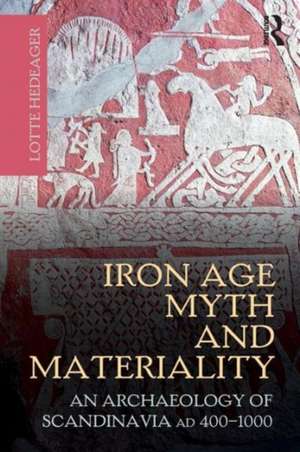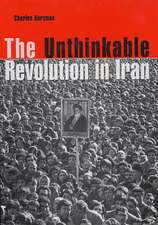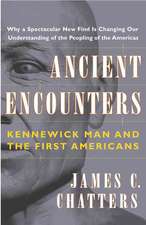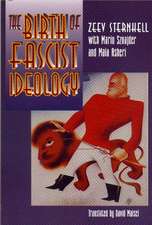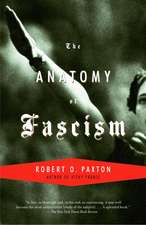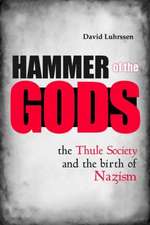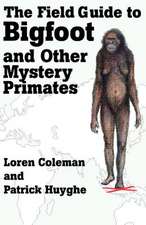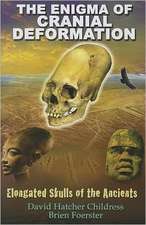Iron Age Myth and Materiality: An Archaeology of Scandinavia AD 400-1000
Autor Lotte Hedeageren Limba Engleză Paperback – 27 apr 2011
While the material evidence is from the Iron Age, most Old Norse texts were written down in the thirteenth century or even later. With a time lag of 300 to 900 years from the archaeological evidence, the textual material has until recently been ruled out as a usable source for any study of the pagan past. However, Hedeager argues that this is true regarding any study of a society’s short-term history, but it should not be the crucial requirement for defining the sources relevant for studying long-term structures of the longue durée, or their potential contributions to a theoretical understanding of cultural changes and transformation. In Iron Age Scandinavia we are dealing with persistent and slow-changing structures of worldviews and ideologies over a wavelength of nearly a millennium. Furthermore, iconography can often date the arrival of new mythical themes anchoring written narratives in a much older archaeological context.
Old Norse myths are explored with particular attention to one of the central mythical narratives of the Old Norse canon, the mythic cycle of Odin, king of the Norse pantheon. In addition, contemporaneous historical sources from late Antiquity and the early European Middle Age - the narratives of Jordanes, Gregory of Tours, and Paul the Deacon in particular - will be explored. No other study provides such a broad ranging and authoritative study of the relationship of myth to the archaeology of Scandinavia.
| Toate formatele și edițiile | Preț | Express |
|---|---|---|
| Paperback (1) | 297.79 lei 3-5 săpt. | +27.93 lei 7-13 zile |
| Taylor & Francis – 27 apr 2011 | 297.79 lei 3-5 săpt. | +27.93 lei 7-13 zile |
| Hardback (1) | 1006.30 lei 6-8 săpt. | |
| Taylor & Francis – 28 apr 2011 | 1006.30 lei 6-8 săpt. |
Preț: 297.79 lei
Nou
Puncte Express: 447
Preț estimativ în valută:
57.00€ • 61.94$ • 47.91£
57.00€ • 61.94$ • 47.91£
Carte disponibilă
Livrare economică 29 martie-12 aprilie
Livrare express 15-21 martie pentru 37.92 lei
Preluare comenzi: 021 569.72.76
Specificații
ISBN-13: 9780415606042
ISBN-10: 0415606047
Pagini: 320
Ilustrații: 62 black & white illustrations, 16 black & white halftones, 27 black & white line drawings
Dimensiuni: 156 x 234 x 18 mm
Greutate: 0.59 kg
Ediția:1
Editura: Taylor & Francis
Colecția Routledge
Locul publicării:Oxford, United Kingdom
ISBN-10: 0415606047
Pagini: 320
Ilustrații: 62 black & white illustrations, 16 black & white halftones, 27 black & white line drawings
Dimensiuni: 156 x 234 x 18 mm
Greutate: 0.59 kg
Ediția:1
Editura: Taylor & Francis
Colecția Routledge
Locul publicării:Oxford, United Kingdom
Public țintă
Postgraduate and UndergraduateCuprins
Introduction Part I: A Mythical Narrative 1. The mythical cycle of Odin Part II: Words of Identity 2. Written sources on the pre-Christian past 3. Origin myths and political/ethnical affiliations Part III: The Constitution of 'Otherness' 4. Embodied in animals 5.Other ways of ‘being in the world’ Part IV: Materiality Matters 6. Commemorative places 7. The cosmic order of landscapes Part V: The Making of Norse Mythology 8. Knowledge production reconsidered 9. Hypothesis I: The Huns in Scandinavia 10. Hypothesis II: Attila and the recast of Scandinavian mythology 11. Stranger kings: Intruders from the outside realm
Notă biografică
Lotte Hedeager is Professor of Archaeology and Head of the Department of Archaeology, Conservation and History at the University of Oslo, Norway.
Descriere
>Iron Age Myth and Materiality: an Archaeology of Scandinavia AD 400-1000 considers the relationship between myth and materiality in Scandinavia from the beginning of the post-Roman era and the European Migrations up until the coming of Christianity. It pursues an interdisciplinary interpretation of text and material culture and examines how the documentation of an oral past relates to its material embodiment.
